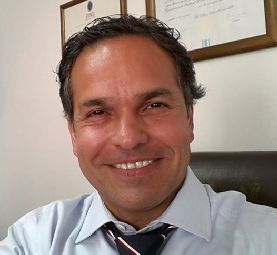In an unprecedented ruling in Argentina, the BA High Court of Appeals delivered a week ago its second judgement since trial by jury was implemented last year in the province of Buenos Aires. This time, J. Ricardo Maidana (leading opinion) and J. Mario Kohan denied the claim of a prosecutor who appealed a not guilty verdict of the jury that had acquitted a defendant in a murder case in the district of La Matanza. The prosecutor claimed that section 20 and others of the Procedural Code, which establish the finality of the jury’s verdict and, therefore, forbid any chance of appealing a not guilty verdict, are unconstitutional. The prosecutor argued that the prohibition “impaired his due process of law and the equality of arms”.
 |
| J. Ricardo Maidana |
This ruling has enormous implications that transcend this particular case. It represents a milestone in Argentina’s jurisprudence, and it is likely to or will have a strong influence on future decisions for several reasons. First, this was only the second time that the BA High Court of Appeals reviewed a trial by jury case and BA is the largest province of the country. Second, it is the first High Court in Argentina to definitively recognize that an appeal is an exclusive right and guarantee of any convicted person. In doing so, the decision highlights the sovereign and popular nature of the jury. Third, it establishes clearly that the post of the prosecutor enjoys no special constitutional guarantees precisely because the prosecutor is a representative of the state itself and individuals exercise their rights against inference by the state. And fourth, in reaching this judgement, the High Court expressed a huge endorsement of the jury system.
Thus, the High Court masterfully solved one of the most sensitive matters in any civil law country which implements trial by jury, through its cultural break with the longstanding inquisitorial tradition: an acquittal granted by a “not guilty” verdict of the jury is final and cannot be challenged on appeal by the State. That’s what the Human Rights Conventions state, and that's how the strongest Western common law democracies have exercised it peacefully for the last six centuries. The defendant is protected from prosecutorial appeal, consistent with the double jeopardy clause.
Here, we highlight the most important paragraphs of this landmark ruling (see full text below):
«“... It is logical that the prosecution cannot claim any guarantees to their advantage, precisely because they are limited to the very power of the State itself...”
Thus, the Federal Supreme Court argued: “... the guarantee of the right to appeal has been consecrated only in the benefit of the accused. It can be concluded, then, that the prosecution is an organ of the State and is not the intended recipient of such benefits....”.
With the establishment of the jury in Buenos Aires, the local legislature has decided to close off the possibility of appealing the acquittal –a not guilty verdict- (section 20, subsection 3, 371 c, subsection. 7 in fine, 450 and 452 in fine, CPP).
It is a decision of the local Legislature that is supported by the nature and tradition of trial by jury. The jury, politically speaking, is none other than a requirement that must be fulfilled before state exercise of force in the form of punishment can be possible. It is the requirement of achieving the consent of a minimum number of citizens that symbolizes, in the best possible way in our mass society, politically and not statistically, the popular opinion (Maier, Julio B., Derecho Procesal Penal, op. cit., Volume I, 2004, at. 787). For that reason, a not guilty verdict of the jury bars the use of an appeal, whatever the assessment of the verdict: fair or not fair before the law.
In other words: the jury is the expression of sovereignty of the People, whose will cannot be diminished by any of the Powers of the State. Therefore, [prosecution appeal of a not guilty jury verdict] would be analogous to a legislative mechanism that sought to twist the result of an election of authorities, which is impermissible».
«The fact that makes possible the opposite case, that is, that the defendant can appeal a conviction, is that it is necessary to reconcile the guarantee to be judged by one’s fellow citizens (section 24, 75 subsection 12 and 118 of the National Constitution), with the guarantee to appeal a conviction (section 14.5, PIDCP; 8.2.h CADH). In other words: the recognition of one guarantee cannot nullify, at the same time, another one.
To sum up, the prosecutor´s office is a State organ and, therefore, is not the holder of the guarantee that it invokes; the prosecutor’s option to appeal is subject to the procedural design of the local Legislature. Put simply: a jury verdict appeal by the State is a legal authority that, in this case, has not been granted (sections 20, subsection 3, 371 quáter, subsection 7 in fine, 450 y 452 in fine, CPP)».
The first judgement of the BA HC of Appeals stated that, in the implementation of the trial by jury, there is no turning back since it is the regulation of a constitutional mandate.

